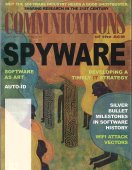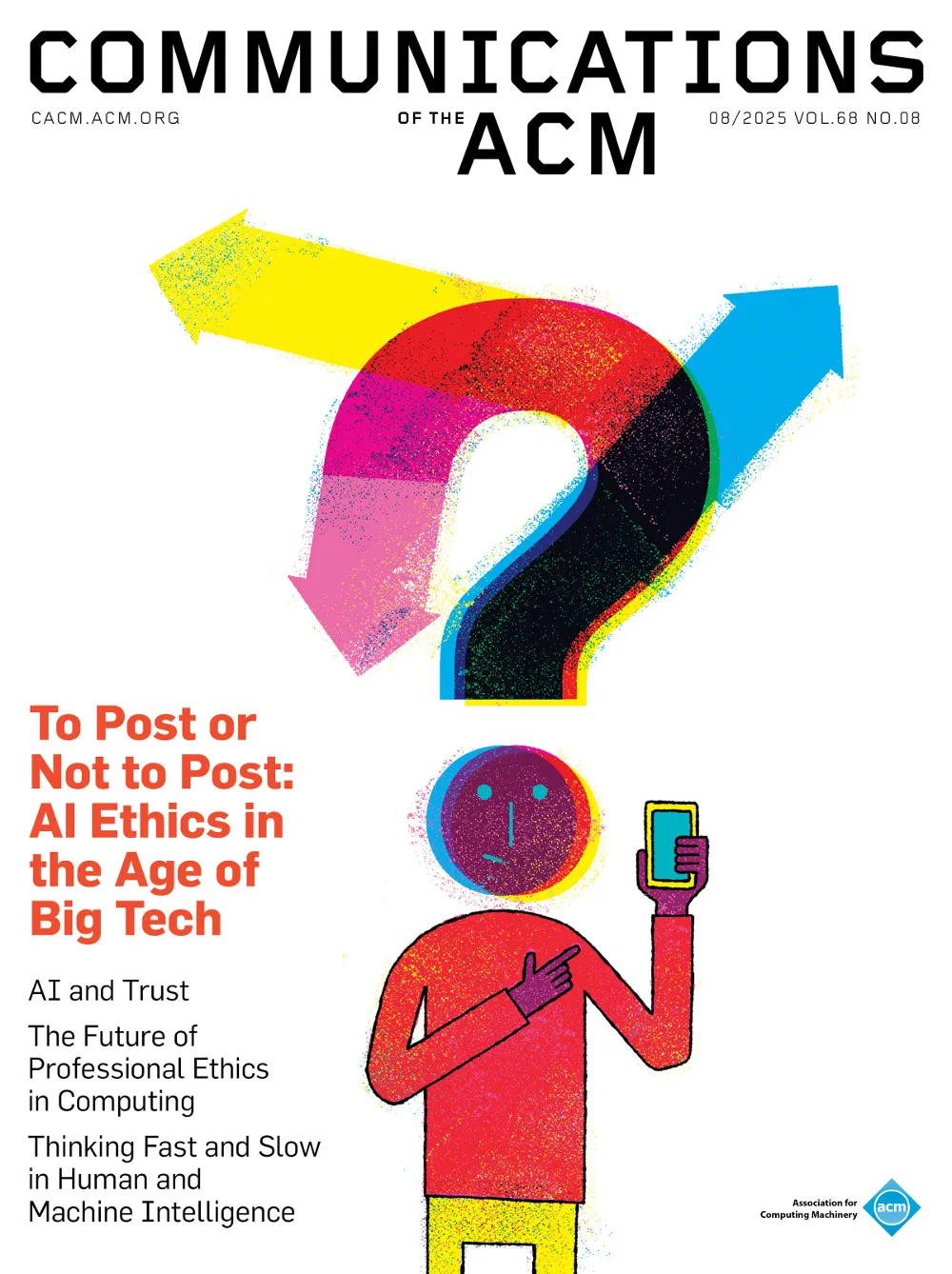August 2005 - Vol. 48 No. 8

Features
‘Silver Bullet’ Milestones in Software History
Top 10 Downloads from ACM’s Digital Library
Does ACM Support Matter to Conferences or Journals?
Why Spyware Poses Multiple Threats to Security
What Do Consumers Really Know About Spyware?
The Deceptive Behaviors that Offend US Most About Spyware
Is Spyware an Internet Nuisance or Public Menace?
Spyware: A Little Knowledge Is a Wonderful Thing
Investigating Factors Affecting the Adoption of Anti-Spyware Systems
A Framework For Spyware Assessment
Web Browsing and Spyware Intrusion
Busting the Ghost in the Machine
Spyware: A View from the (Online) Street
Auto-ID: Managing Anything, Anywhere, Anytime in the Supply Chain
Competitor Analysis and its Defenses in the E-Marketplace
Emerging Information Technologies: Developing a Timely IT Strategy
Sharing Research in the 21st Century: Borrowing a Page from Open Source Software
Why the Software Industry Needs a Good Ghostbuster
How -niversity Professors Teach Project Management For Information Systems



